Automakers Continue Battling Right to Repair Laws in Massachusetts

Despite Massachusetts voters approving a ballot initiative giving customers and independent repair shops more access to the massive amount of data being tabulated by modern cars by a sizable margin, automakers haven’t given up their unpleasantly consistent opposition to the right-to-repair movement. Backed by consumer advocates, unaffiliated repair shops, the aftermarket community, and those interested in D.I.Y. projects, the movement has made meaningful headway in MA under the updated laws. Vehicles that collect and transmit information back to the automaker manufactured for 2022 (or later) model year are now required to be paired with a standardized open-access data platform accessible by owners and anyone else they feel should have access.
But the automotive industry continues to claim these mandates would be impossible to comply with on such a short timeline and has launched a federal lawsuit that the revised rules create a massive security risk in terms of customer privacy and vehicle safety. We’re inclined to believe this is an easy way for legacy automakers to buy time so they can ultimately find ways of not adhering to the updated laws so they can continue benefiting from being the sole purveyor of the data. But we’re willing to entertain their case before making any final rulings — not that it will have any impact on the official case.
When asked to clarify on which grounds it’s making these claims, AAI stated that it couldn’t offer any additional comments on pending litigation. Member organizations simultaneously suggested we reach out to the representing trade group for more information on the issue.
Truth be told, we’re under the impression that automakers simply don’t want to give up the monopoly they currently have on driving data. Many have previously discussed how data would become an essential part of the business as they transition into “mobility firms.” We’ve started to see this manifest via in-car advertising, comprehensive marketing databases, enhanced forms of fleet management, and partnered insurance deals — where customer driving behavior is tracked 24/7. But they’re just the tip of the proverbial iceberg. The industry thinks it can effectively use the glut of connected vehicle data it’s amassing to compete with social media giants. Unfortunately, it becomes substantially less valuable to automakers once it’s been made widely available.
I have said before that I cannot be objective on this matter and support the right-to-repair movement in almost every case. Purchasing a new vehicle should not mean that you’ll also be moonlighting as a data farmer transmitting valuable information to automakers that don’t bother paying you for your time despite reaping all the rewards. Frankly, I’d like to see most data acquisition done away with — especially if automakers are claiming it’s a gigantic security risk in the first place. The very least the industry could do is give customers direct access to the portion they’re creating and don’t benefit from directly.
The only nugget of news we’re able to take away from this is that it might be difficult (if not impossible) for the industry to adopt a standardized system for sharing the data before 2022. Consumer advocates claim that just giving independent shops the same tools they use should be sufficient in the short term but the law stipulates there be a universal open-access way of scooping out the relevant data.
From AN:
Robert O’Koniewski, executive vice president of the Massachusetts State Automobile Dealers Association, said it is “virtually impossible” for automakers and franchised dealerships to comply with the revised law at this time.
“From the perspective of the manufacturers, I don’t know how they’re going to comply from the timeline because it’s just not realistic,” he told Automotive News. “It takes anywhere upwards of three to five years on development of a model-year vehicle.”
Automakers can begin selling 2022 model-year vehicles as early as Jan. 2. Dealers will almost certainly have some 2022 models on their lots by at least March, said O’Koniewski, who has strongly opposed the ballot initiative.
When Massachusetts’ right-to-repair law was enacted in 2013 and adopted a year later as a national standard by automakers and independent repair shops, the law applied to vehicles starting with the 2018 model year.
“I advised legislators and other interested parties on that fact: that manufacturers just don’t put together a model-year vehicle the year before,” O’Koniewski continued. “There is three to five years of research, development, planning, engineering and manufacturing that goes into it.”
That timeline sounds about right but we’re not brimming with sympathy for the industry, even if right-to-repair laws end up going national. Automakers’ increasingly obsessive practice of data hoarding has become genuinely frustrating and frequently fails to provide evidence that the consumer has much to gain as part of the arrangement.
[Image: CAT SCAPE/Shutterstock]

A staunch consumer advocate tracking industry trends and regulation. Before joining TTAC, Matt spent a decade working for marketing and research firms based in NYC. Clients included several of the world’s largest automakers, global tire brands, and aftermarket part suppliers. Dissatisfied with the corporate world and resentful of having to wear suits everyday, he pivoted to writing about cars. Since then, that man has become an ardent supporter of the right-to-repair movement, been interviewed on the auto industry by national radio broadcasts, driven more rental cars than anyone ever should, participated in amateur rallying events, and received the requisite minimum training as sanctioned by the SCCA. Handy with a wrench, Matt grew up surrounded by Detroit auto workers and managed to get a pizza delivery job before he was legally eligible. He later found himself driving box trucks through Manhattan, guaranteeing future sympathy for actual truckers. He continues to conduct research pertaining to the automotive sector as an independent contractor and has since moved back to his native Michigan, closer to where the cars are born. A contrarian, Matt claims to prefer understeer — stating that front and all-wheel drive vehicles cater best to his driving style.
More by Matt Posky
Latest Car Reviews
Read moreLatest Product Reviews
Read moreRecent Comments
- ToolGuy If these guys opened a hotel outside Cincinnati I would go there to sleep, and to dream.
- ToolGuy Michelin's price increases mean that my relationship with them as a customer is not sustainable. 🙁
- Kwik_Shift_Pro4X I wonder if Fiat would pull off old world Italian charm full of well intentioned stereotypes.
- Chelsea I actually used to work for this guy
- SaulTigh Saw my first Cybertruck last weekend. Looked like a kit car...not an even panel to be seen.



















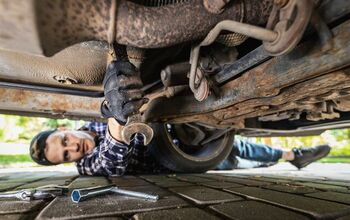
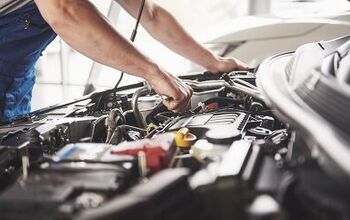
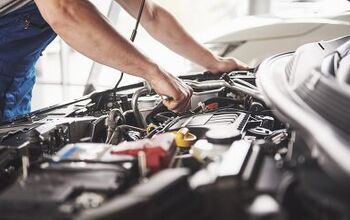
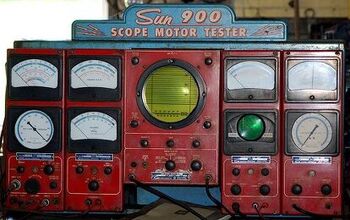
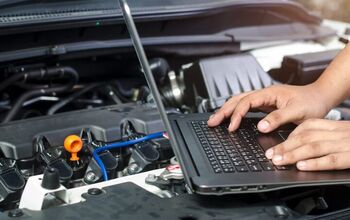










Comments
Join the conversation
My current car is a 2016 Subaru Forester. Fortunately, it has no driver assistance technology nor any internet connectivity installed. I intend to keep driving this car as long as I can because of issues like these in vehicles rolling off the assemlby line today and going forward. If I am forced to buy a new car and cannot get it equipped without driver assistance and internet connectivity that can be turned off permanently, I'll just start pulling fuses and antenna connections.
These videos by an independent Apple computer repair shop owner best describes the right to repair campaign and why it's important, i.e. if it fails, we won't "own" anything any longer. https://youtu.be/EozPi1qmH44 https://youtu.be/RkMlS-F7WpA https://youtu.be/aDNW7BDzM_k https://youtu.be/8EH6xue-_ws